(1)Subtitle news.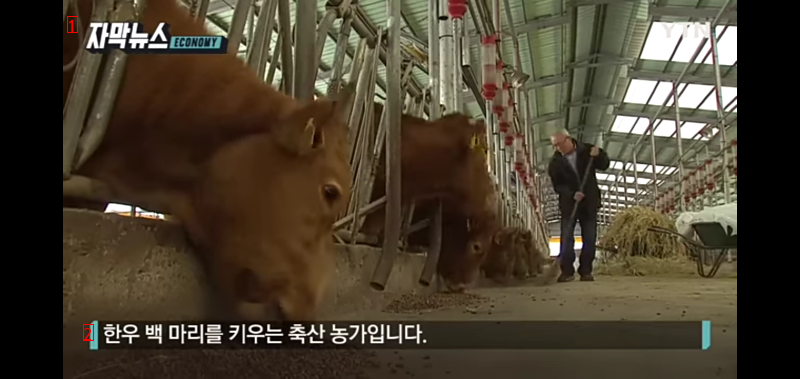
image text translation
(2)I’m a livestock farmer who raises 100 Korean beef.
(1)Subtitle news, ECONONONY.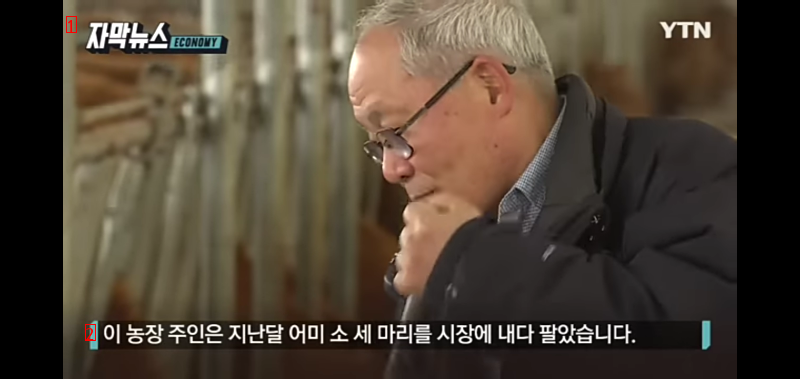
image text translation
(2)The owner of this farm sold three cows to the market last month.
(1)To keep up with soaring feed prices.
image text translation
(1)I can’t meet the demand for funds, so I’m going to fatten my cow’s mother.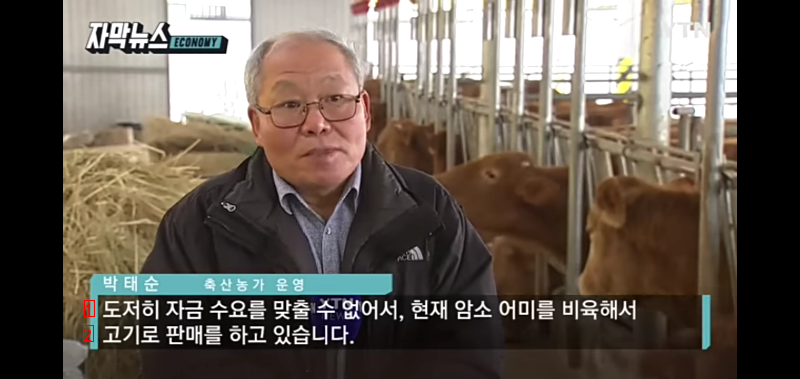
image text translation
(2)They sell meat.
(1)Subtitle News Group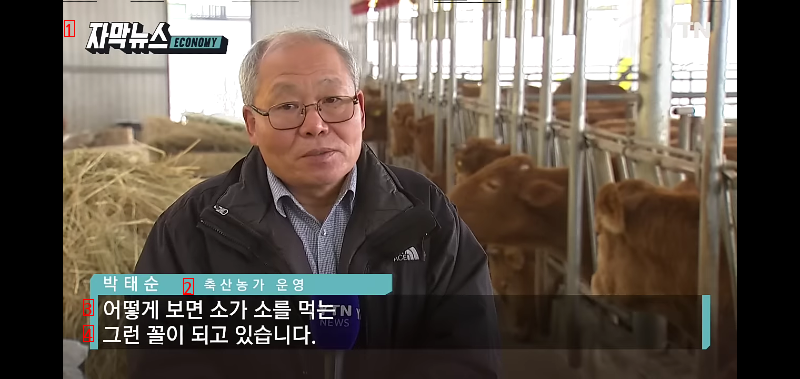
image text translation
(2)Livestock farm management
(3)NY where cows eat cows.
(4)That’s what it looks like.
(1)It doesn’t make money to sell young calves, so they’re fattening their mother cows to give birth to them and paying for their feed.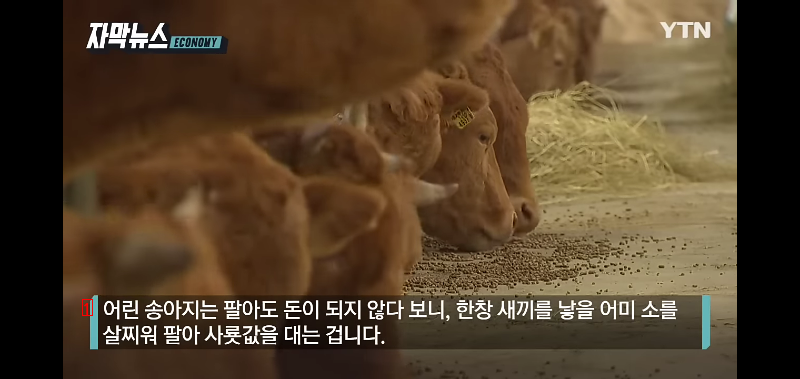
image text translation
(1)Subtitle news.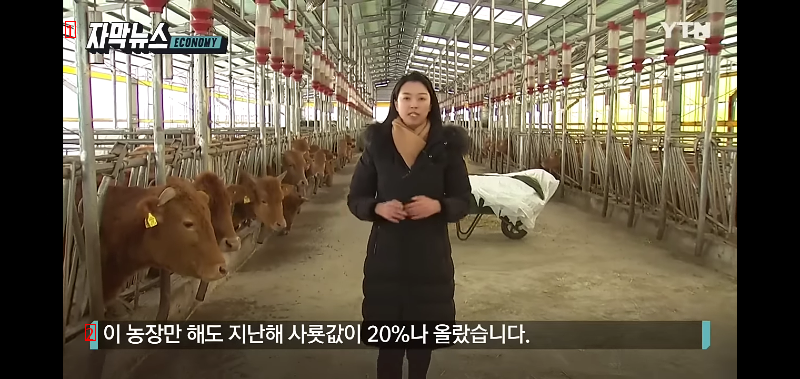
image text translation
(2)This farm alone saw a 20 increase in feed prices last year.
(1)In order to save even a penny on the price of feed, we had to reduce the amount of feed from 3kg a day to 2kg, but it is not enough to cover the price of feed.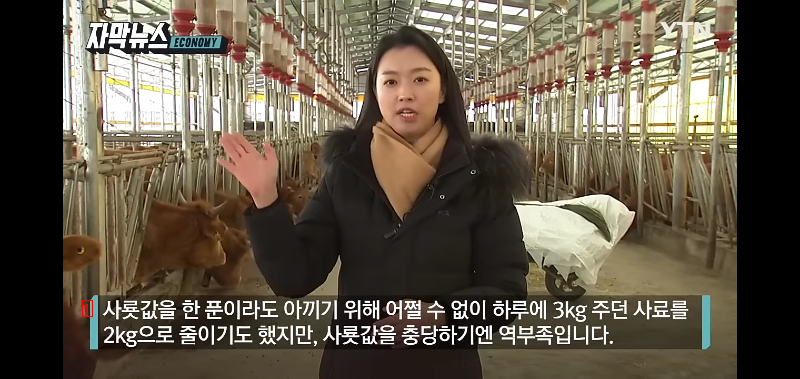
image text translation
(1)Subtitle news. CONOMY.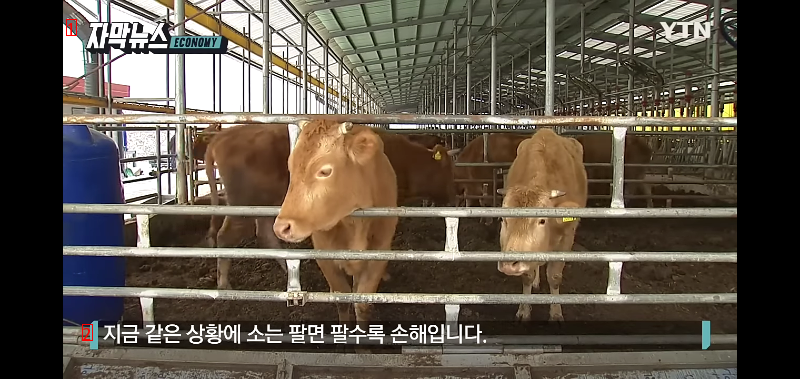
image text translation
(2)In this situation, the more cattle you sell, the more you lose.
(1)Subtitle news.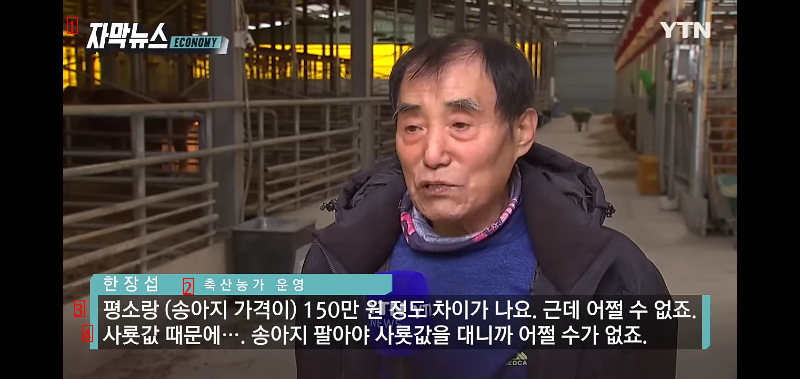
image text translation
(2)Livestock farm management
(3)There’s a 1.5 million won difference in the price of a calf. But there’s nothing we can do.
(4)Because of the price of the feed… I can’t help it because I have to sell the calf to pay for the feed.
(1)Subtitle news.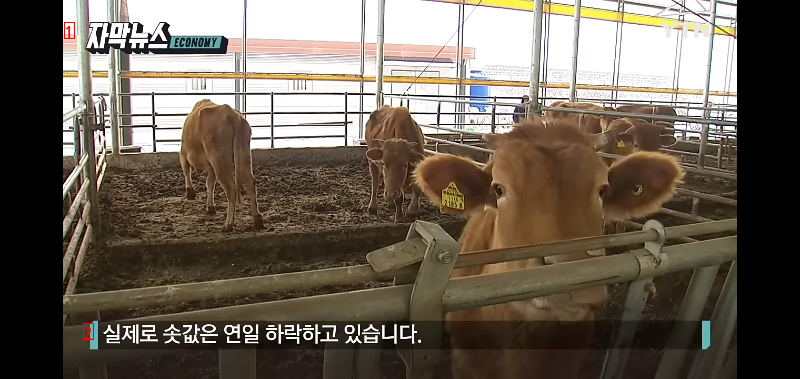
image text translation
(2)In fact, the prices are going down day after day.
(1)Subtitle news.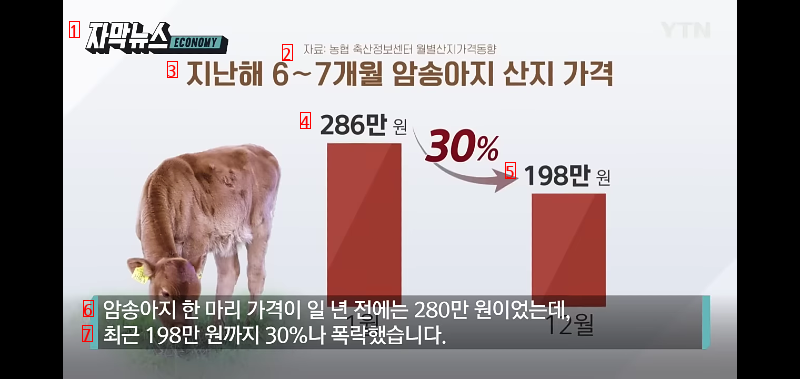
image text translation
(2)Data Agricultural Cooperative Livestock Information Center Monthly Production Price Trend
(3)Last year, the price of the cow calf production area was 6-7 months.
(4)2.86 million won
(5)1.98 million won
(6)A cow was priced at 2.8 million won a year ago in December.
(7)Recently, it plunged 30 times to 1.98 million won.
(1)Subtitle news.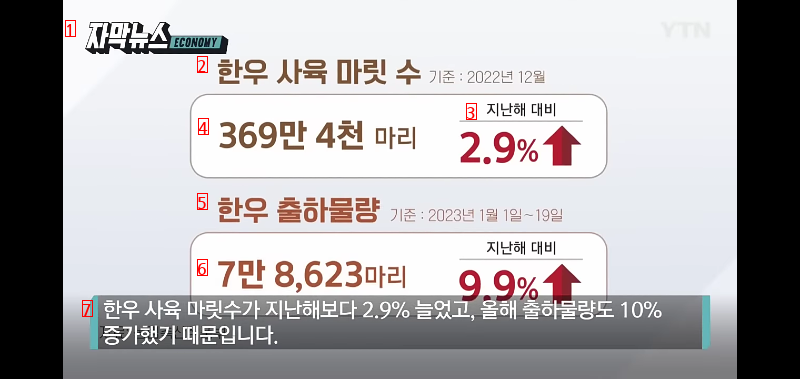
image text translation
(2)Based on the number of Korean beef raised, December 2022
(3)Compared to last year.
(4)3.69 million animals.
(5)Based on Korean beef shipments, January 1st to 19th, 2023
(6)78,623 animals.
(7)This is because the number of Korean cattle raised increased by 29 from last year and shipments increased by 10 this year.
(1)a credit card discount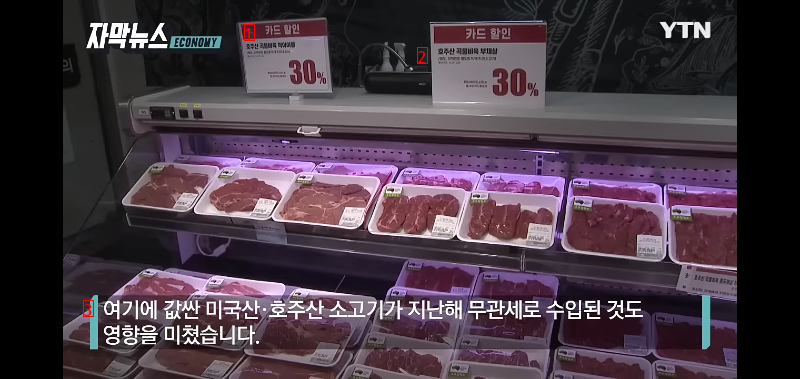
image text translation
(2)Australian grain flesh
(3)On top of that, cheap U.S. Australian beef was imported tariff-free last year.
(1)Subtitle news 86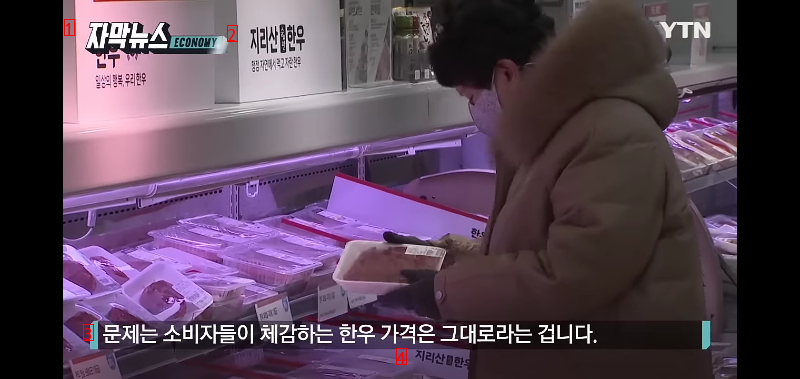
image text translation
(2)Korean beef from Jirisan Mountain
(3)The problem is that the price of Korean beef that consumers feel remains the same.
(4)scattered.
(1)Subtitle news.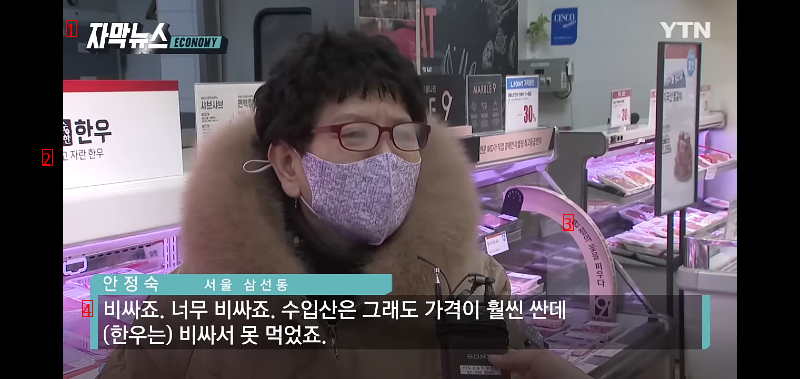
image text translation
(2)Korean beef grown up.
(3)be obliged to
(4)It’s expensive. It’s too expensive. Imported beef is much cheaper, but I couldn’t eat Korean beef because it was expensive.
(1)Subtitle news 8.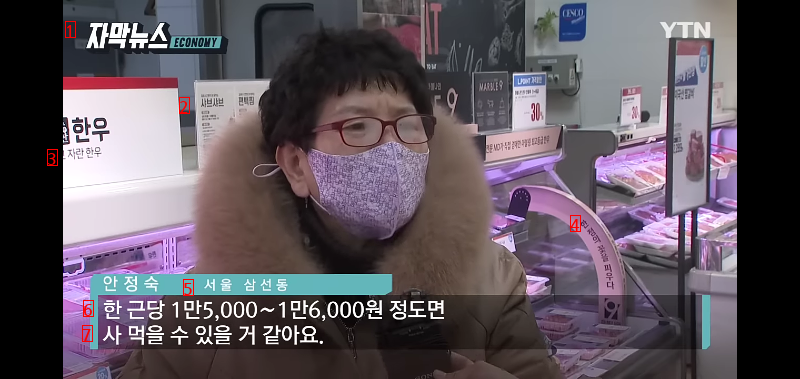
image text translation
(2)Shabu shabu cypress needle
(3)Korean beef grown up.
(4)bloom a flower
(5)Samseon-dong, Seoul
(6)If it’s 15,000 to 16,000 won per kilogram…
(7)I think I can buy it.
(1)Subtitle news ECONDENM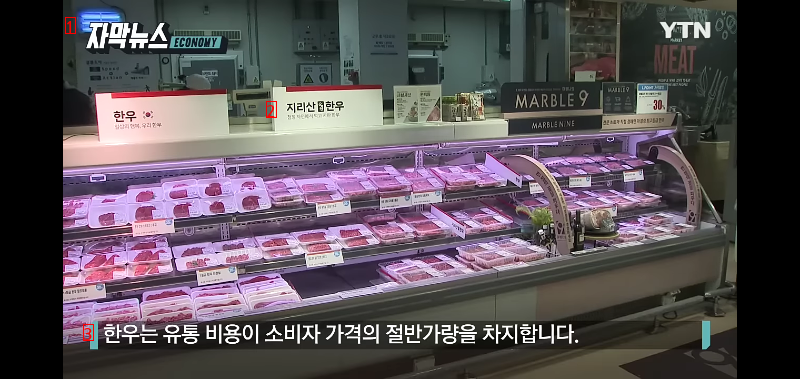
image text translation
(2)Korean beef from Jirisan Mountain
(3)The distribution cost of Korean beef accounts for about half of the consumer price.
(1)Subtitle news.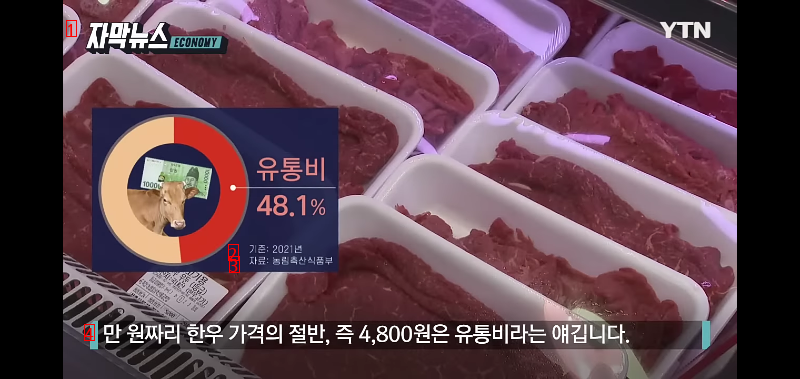
image text translation
(2)As of 2021,
(3)Ministry of Agriculture, Food and Rural Affairs
(4)Half of the 10,000 won Korean beef, or 4,800 won, is the distribution fee.
(1)Subtitle news.
image text translation
(2)In the case of large supermarkets, there is capital centered on large companies, and they try to maximize their own interests as much as possible.
(1)Subtitle news, ECONTONI.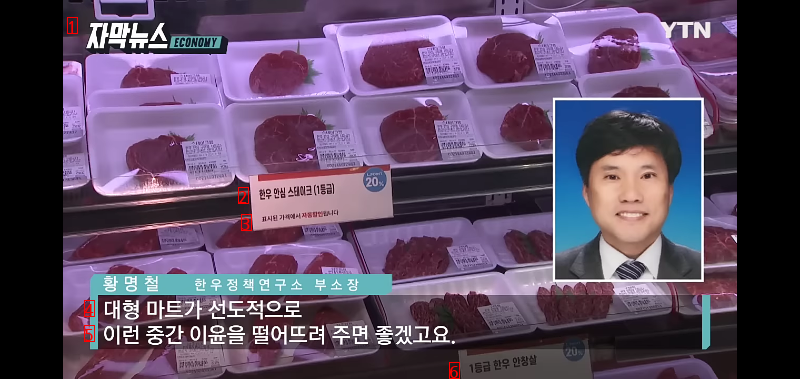
image text translation
(2)Korean beef tenderloin steak grade 1.
(3)Sleeping at the marked price
(4)Big supermarkets are leading the way.
(5)I hope you can lower the median profit.
(6)1st grade Korean beef tripe meat.
(1)Subtitle news, ECONOUNTD.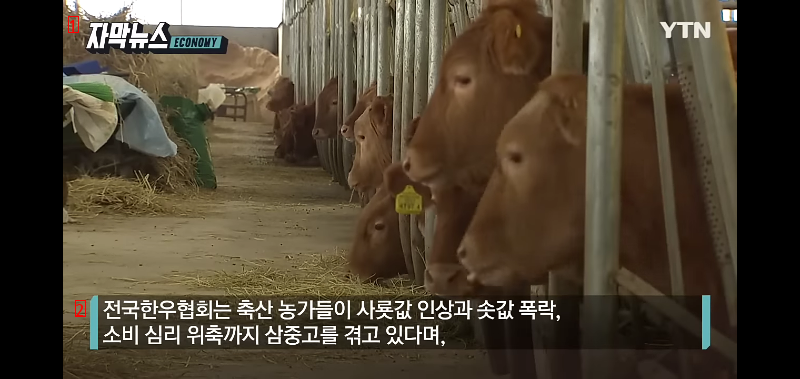
image text translation
(2)The National Korean Beef Association said livestock farmers are suffering from rising feed prices, plunging prices, and shrinking consumer sentiment.
(1)We are demanding that the distributors voluntarily lower the price of Korean beef by preserving the difference in feed prices and improving the production stabilizer of calves.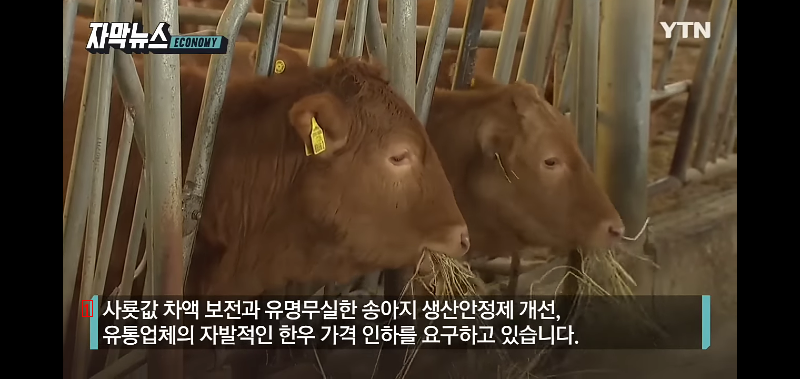
image text translation
(1)In fact, the prices are going down day after day.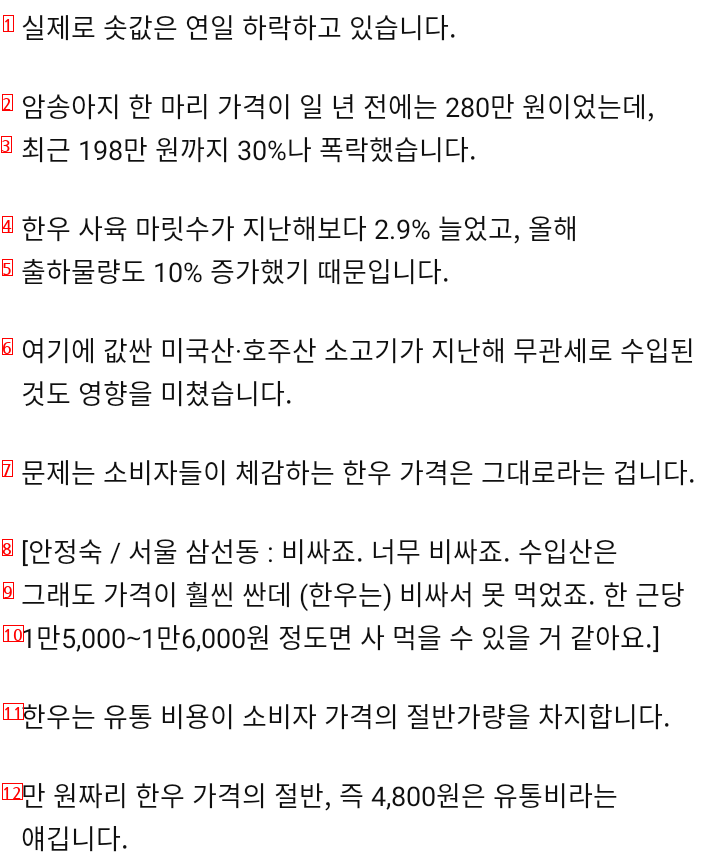
image text translation
(2)A cow was 2.8 million won a year ago.
(3)Recently, it plunged 30 times to 1.98 million won.
(4)The number of Korean cattle raised increased by 29 compared to last year.
(5)It’s because the shipment volume also increased by 10.
(6)On top of that, cheap U.S. and Australian beef were imported tariff-free last year.
(7)The problem is that the price of Korean beef that consumers feel remains the same.
(8)Ahn Jungsook, Seoul Samseon-dong is expensive. It’s too expensive. The imported product is
(9)It’s much cheaper, but I couldn’t eat Korean beef because it was expensive. a gundang party
(10)I think I can buy it for 15,000 to 16,000 won.
(11)The distribution cost of Korean beef accounts for about half of the consumer price.
(12)Half of the 10,000 won Korean beef, or 4,800 won, is the distribution fee.
Half of the price of Korean beef is distribution costs.
So only farmers and consumers suffer.
Korean beef is too expensive.
